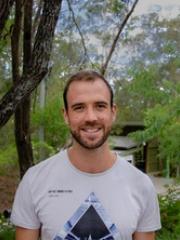Dr Peter Rankin

Researcher biography
Peter is a Research Fellow in Applied Statistics at the Science of Learning Research Centre, Queensland Brain Institute. His research focuses on understanding the mechanisms that enable or limit children's life chances. He plays a crucial role in designing well-structured studies, analysing data, and interpreting results to provide valid and reliable conclusions on how to improve children's opportunities and outcomes.
As an applied statistician, Peter collaborates with an inter-disciplinary team to integrate statistical analyses with qualitative research and contextual knowledge. He brings expertise in identifying and analysing key factors and variables that influence children's life chances. Further, he develops research methodologies, including sampling strategies, data collection methods, and statistical analyses of small- and large-scale data, to understand the complex interplay of factors that contribute to children's opportunities and outcomes. He distills the link between experiences and children's life chances using an array of statistical methods, including longitudinal and multilevel modelling, measurement and psychometrics, causal inference, data science, structural equation modelling, and data visualization. Additionally, he has expertise in uncovering the mediating and moderating factors that influence the relationship between early life experiences and later life chances. By leveraging expertise in statistical analysis and research methodology, Peter's work provides evidence-based insights into the mechanisms that shape children's life chances. This evidence informs research, policy, and interventions aimed at improving children's opportunities and outcomes.
